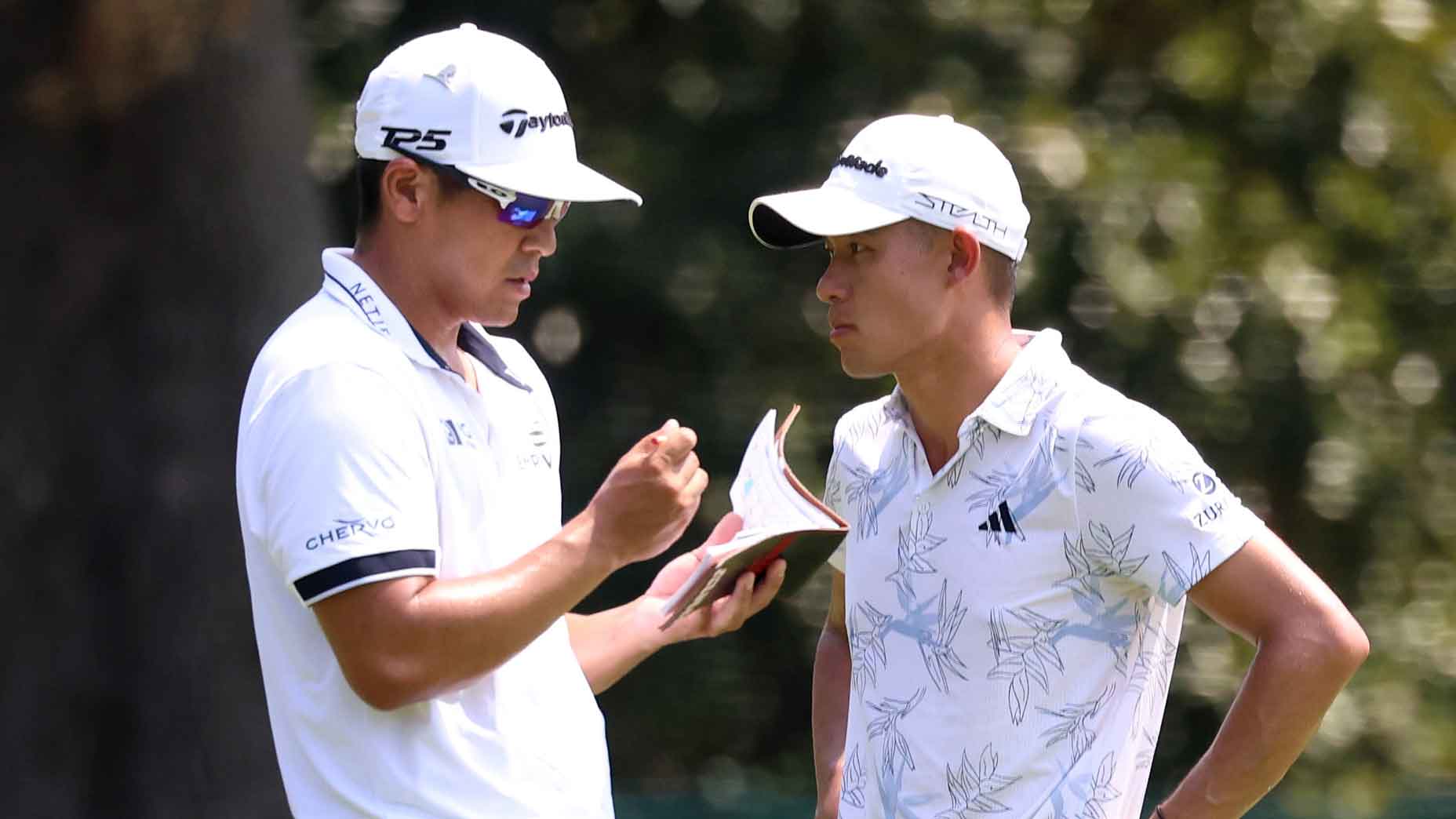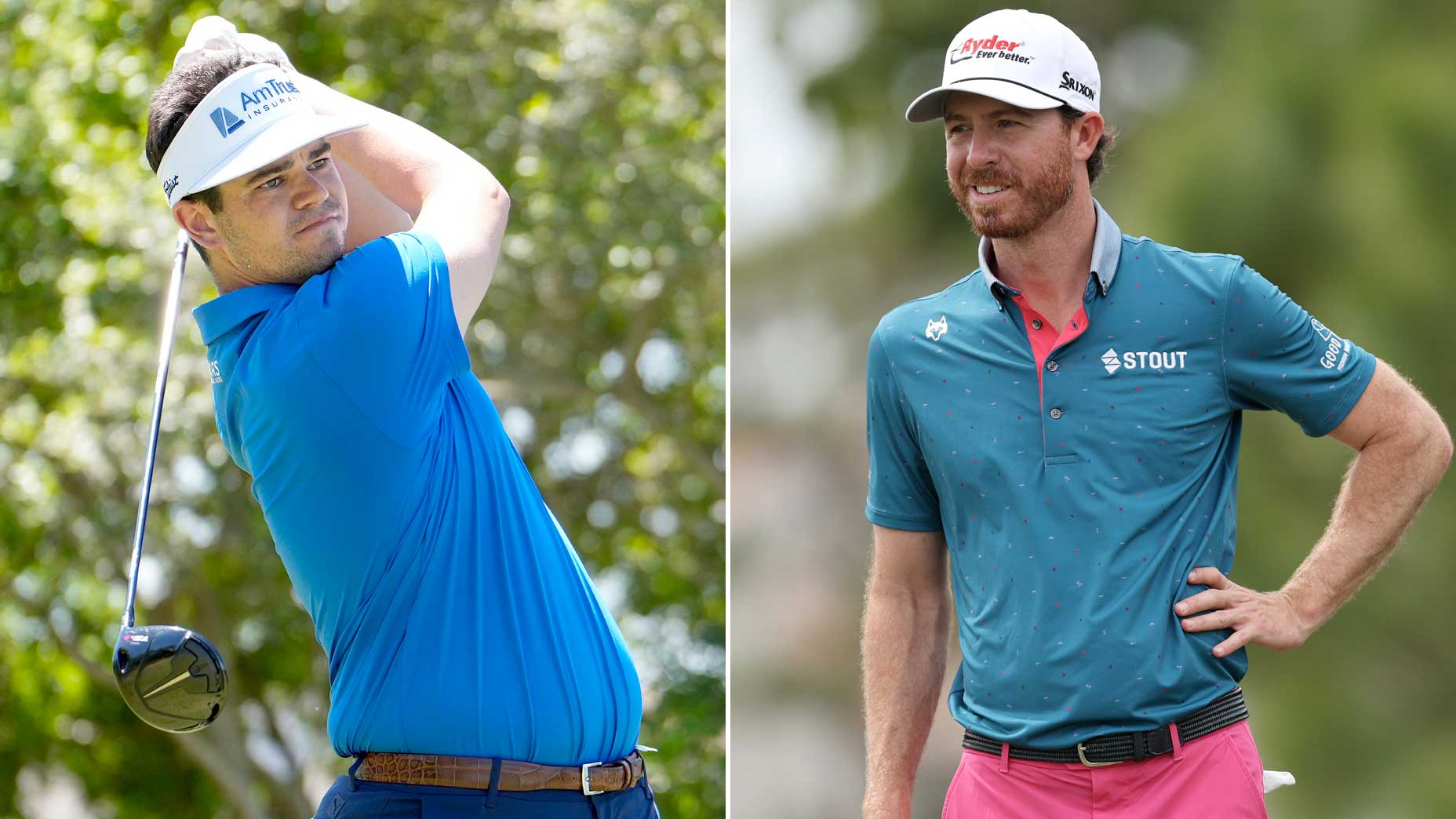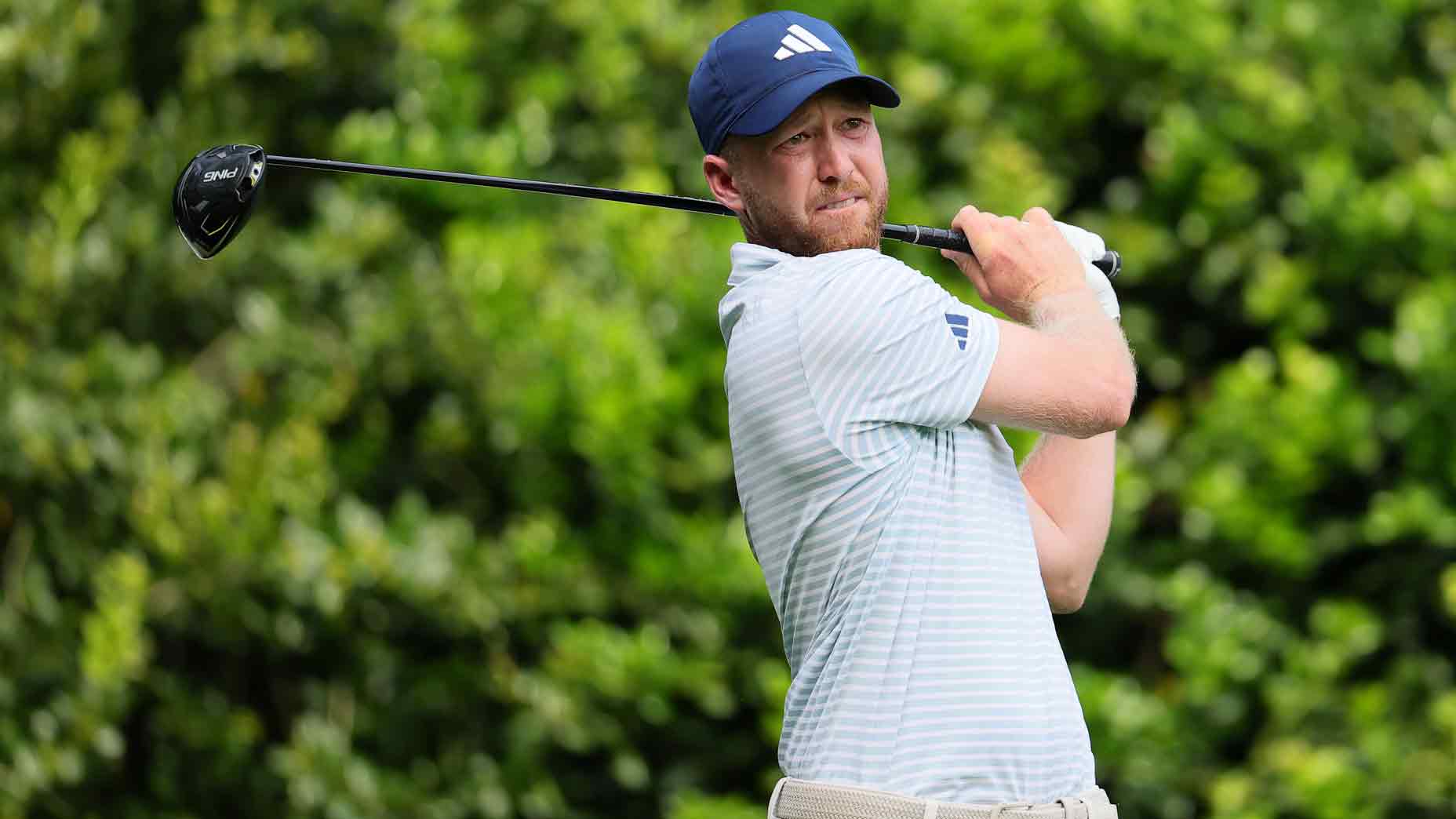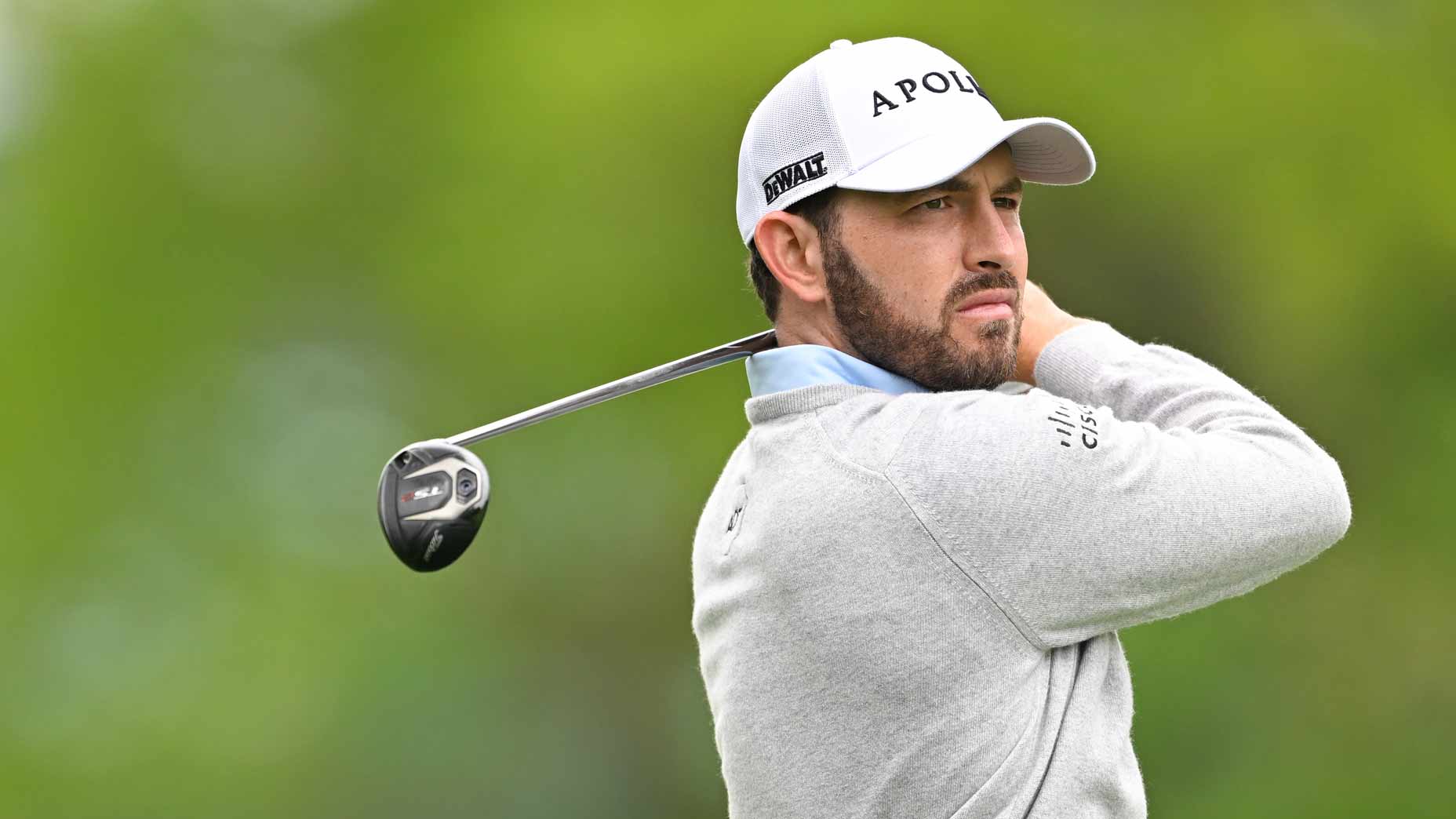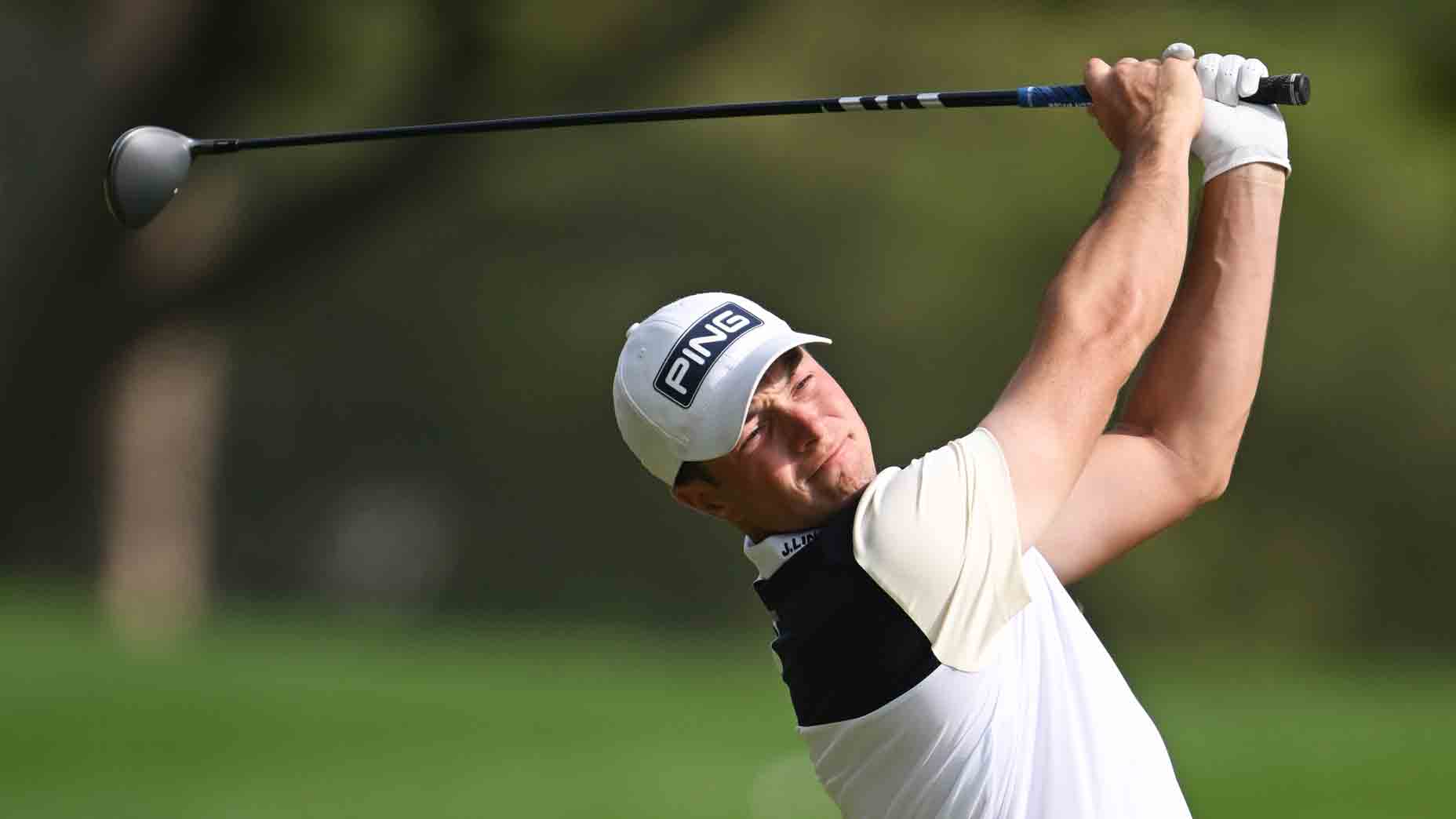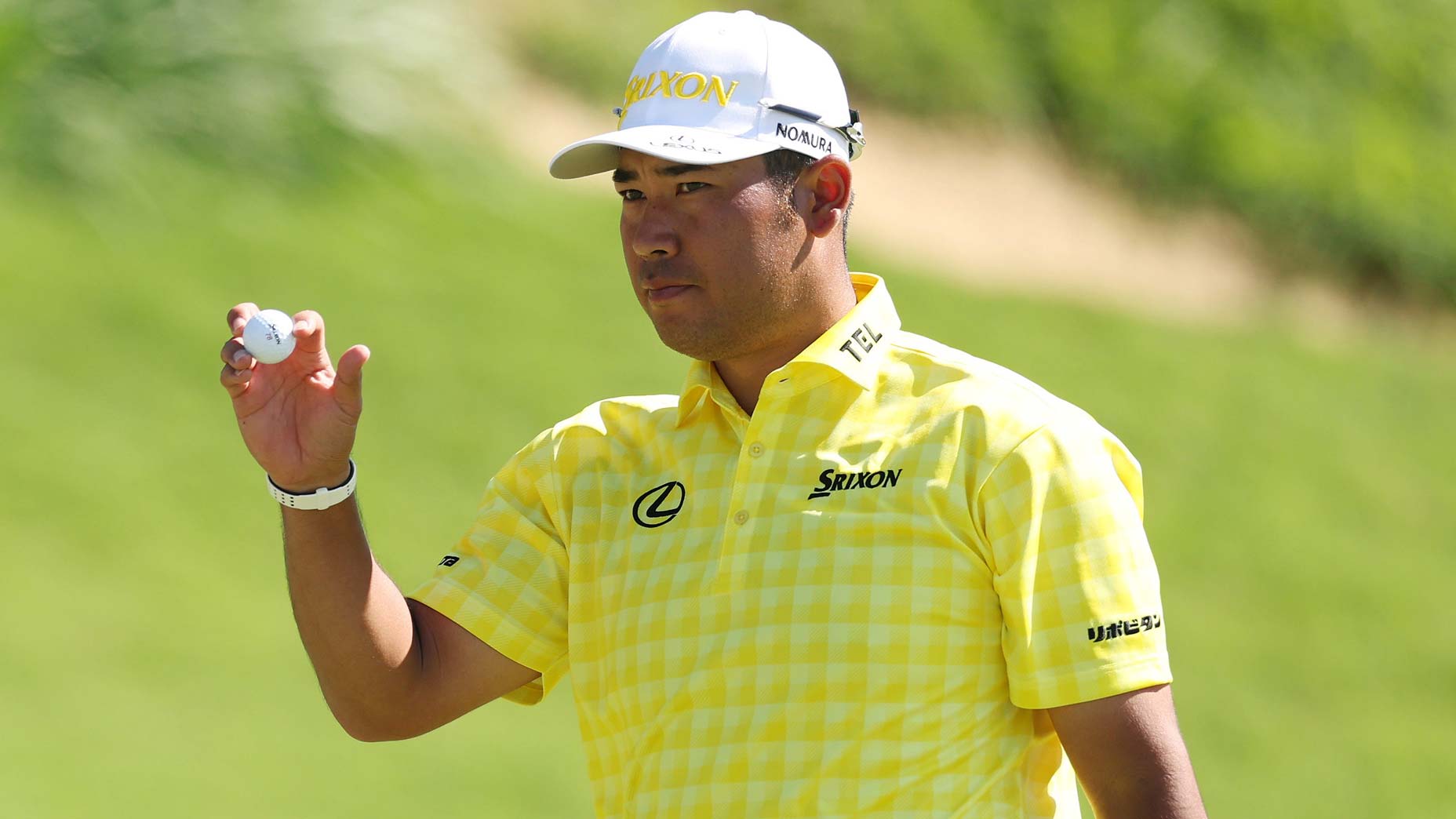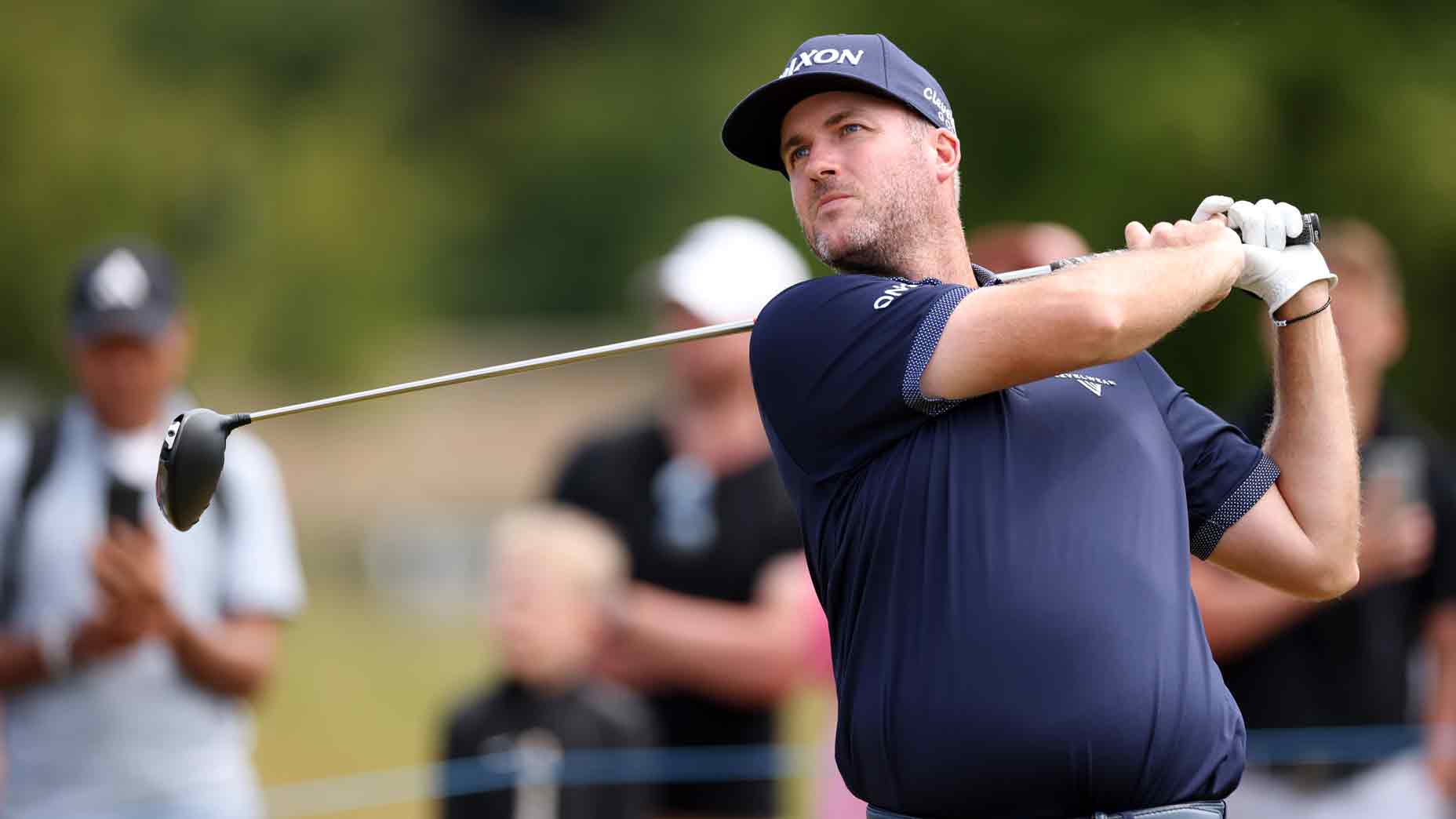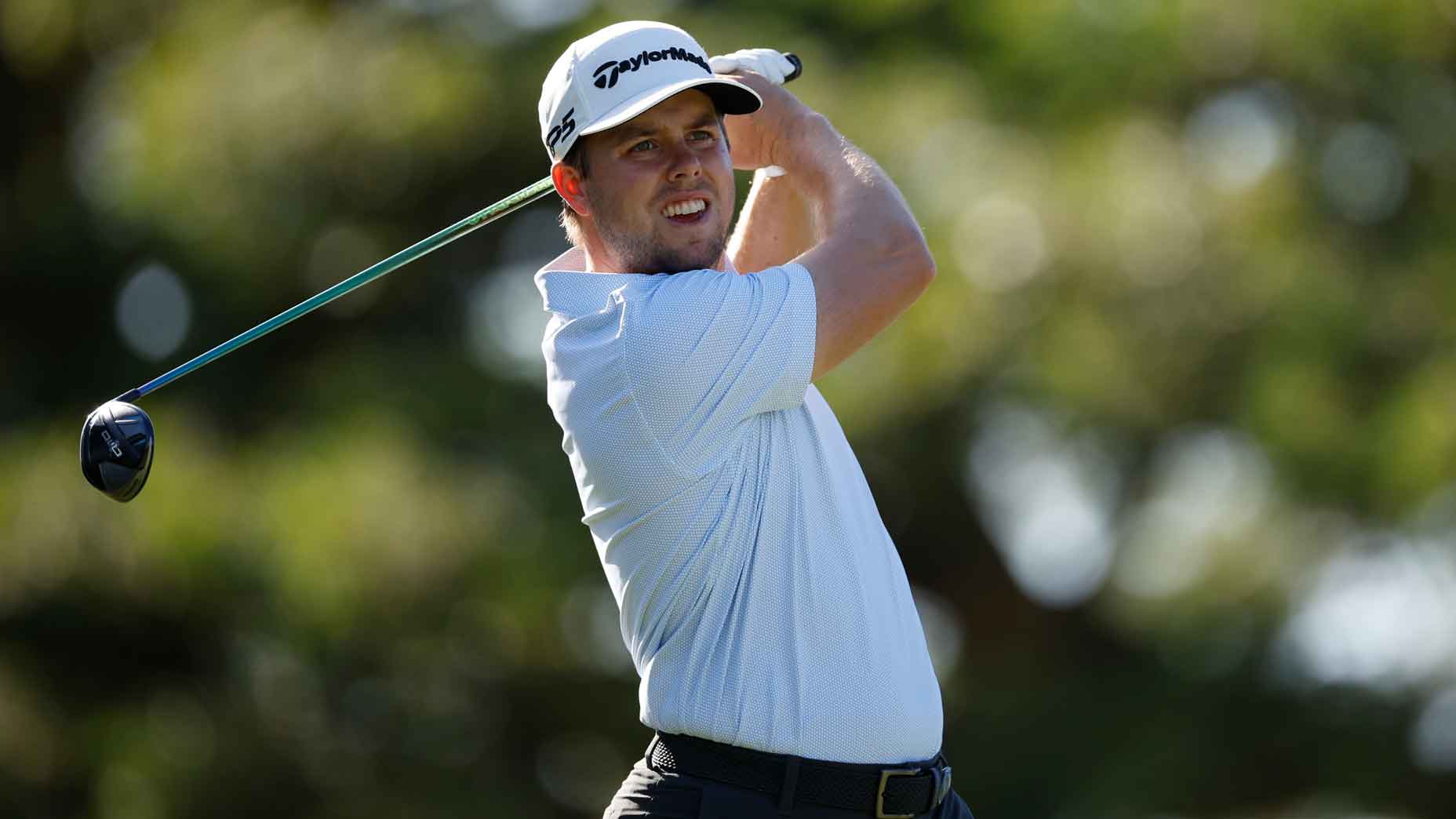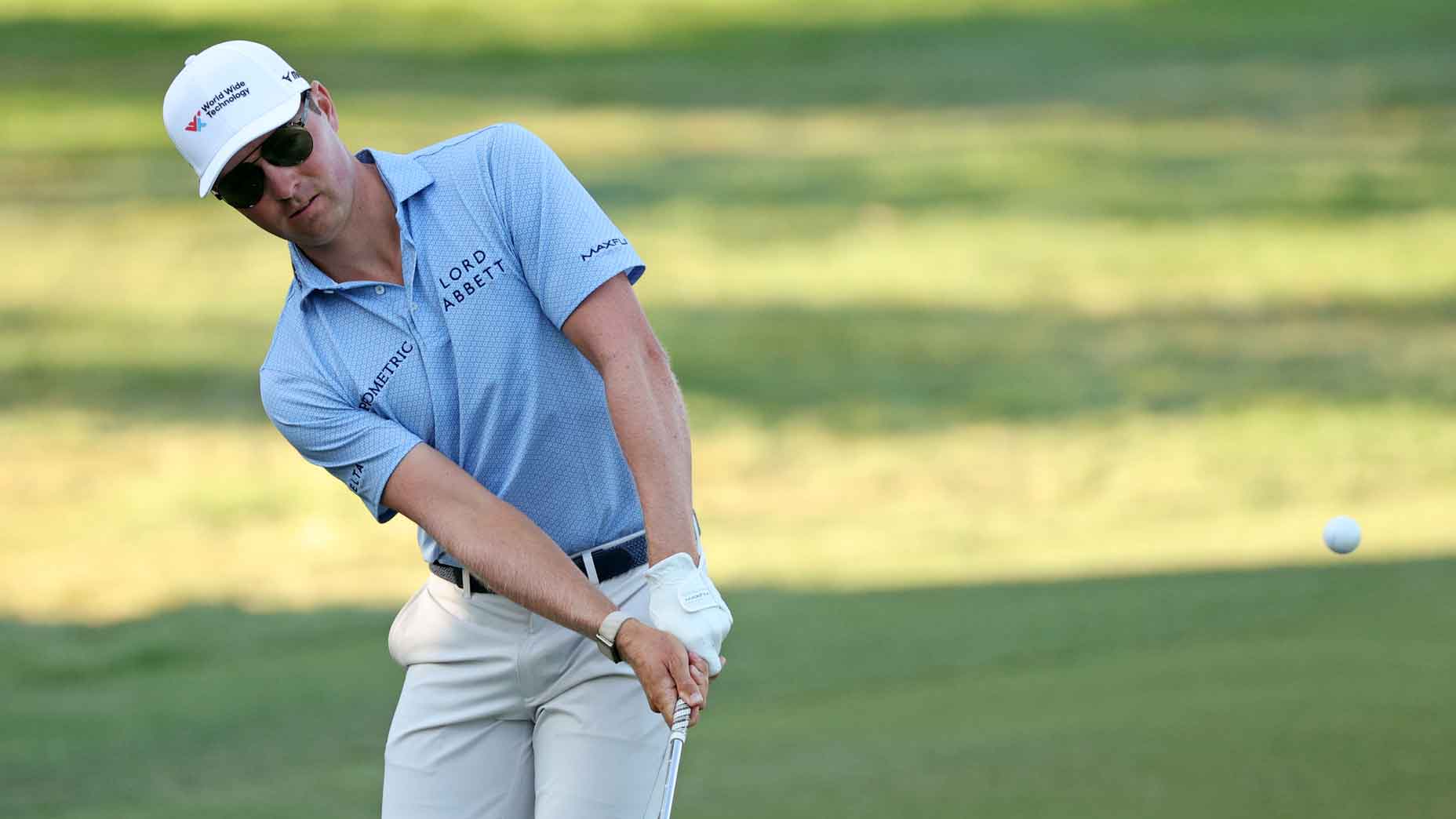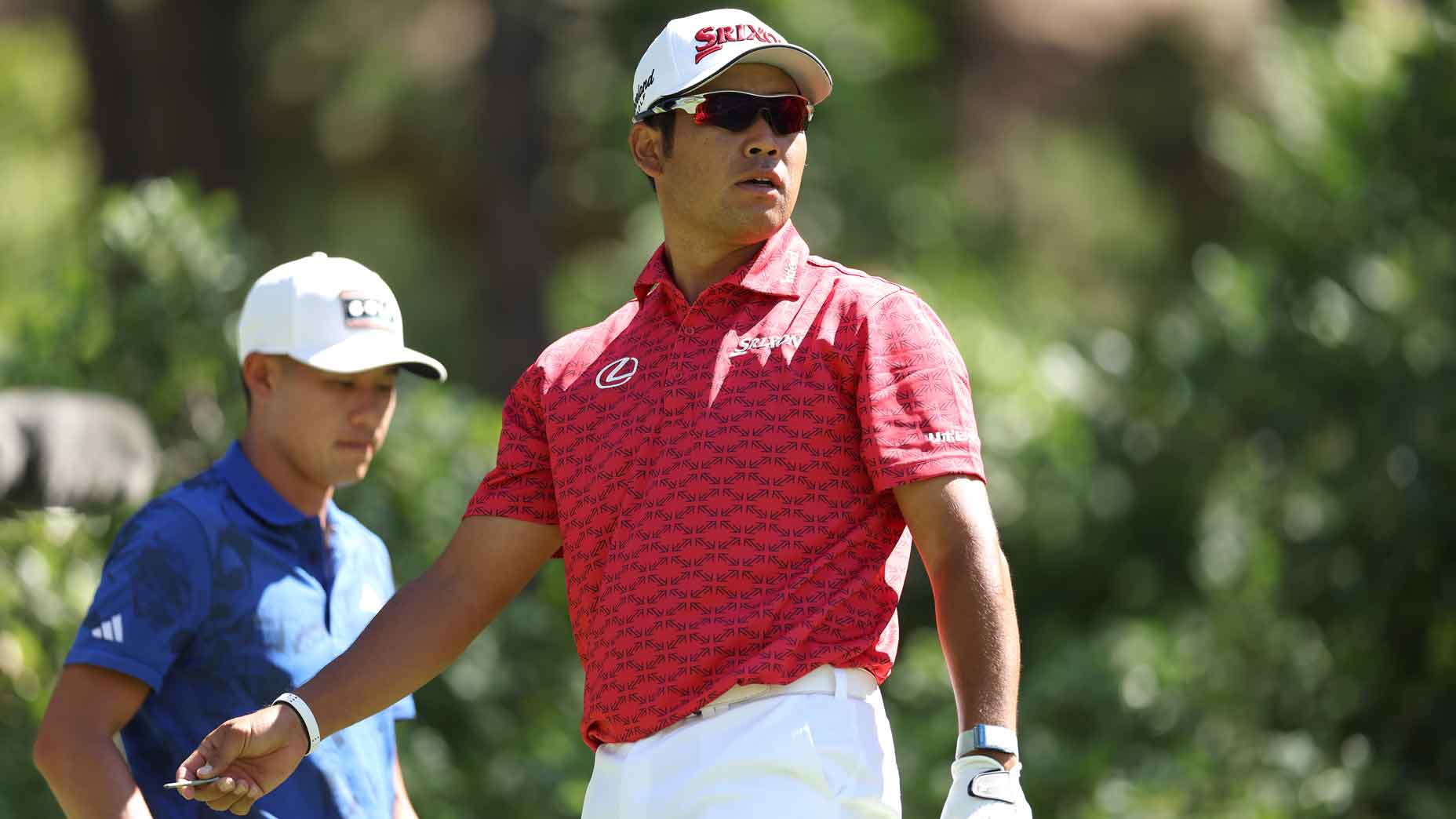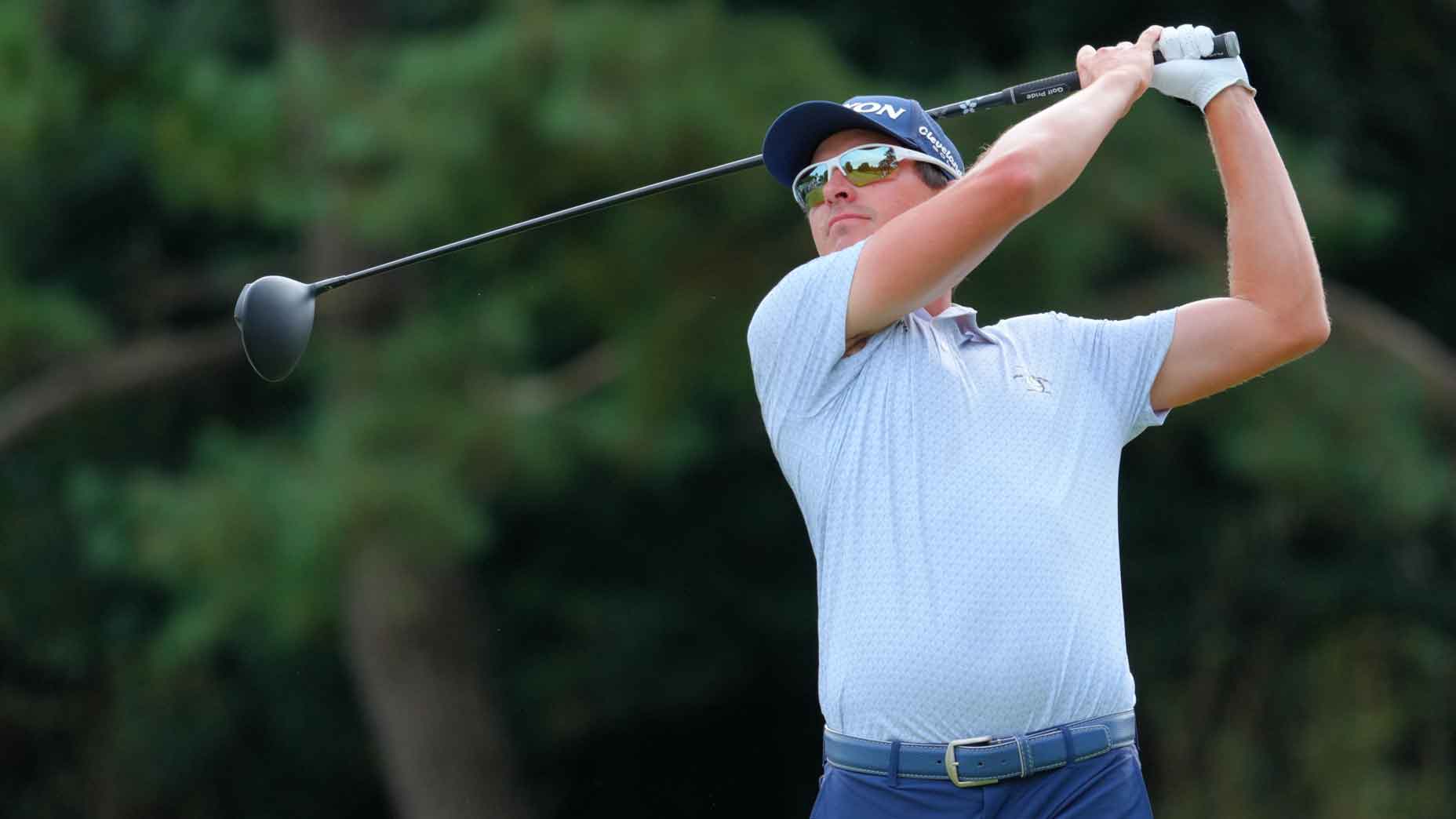Welcome to our weekly PGA Tour gambling-tips column, featuring picks from GOLF.com’s expert prognosticator Brady Kannon. A seasoned golf bettor and commentator, Kannon is a regular guest on SportsGrid, a syndicated audio network devoted to sports and sport betting. You can follow on Twitter at @LasVegasGolfer, and you can read his picks below for the Zurich Classic, which gets underway Thursday in New Orleans, La. Along with Kannon’s recommended plays, you’ll also see data from Chirp, a free-to-play mobile platform that features a range of games with enticing prizes, giving fans all kinds of ways to engage in the action without risking any money.
After a major championship and a Signature Event in back-to-back weeks, we can all take a breather, relax, and have some fun with a team event in New Orleans. It’s Zurich Classic week, and with the intensity toned down a bit, we get a welcome change to the routine — and no better place for such to take place than The Big Easy.
It has been 16 straight weeks on Tour of standard, stroke-play tournaments. We no longer have the match play event in March, so I like the two-person team format to mix things up at this point in the season. The field isn’t anything like we have seen for the past two weeks but Rory McIlroy is here, making his debut at the Zurich Classic, teaming up with fellow countryman, Shane Lowry. Las Vegas residents Collin Morikawa and Kurt Kitayama are a team, as are brothers Matt and Alex Fitzpatrick and twin brothers, Rasmus and Nicolai Hojgaard. At the top of the odds board, the 2022 Zurich Classic champion duo of Xander Schauffele and Patrick Cantlay reside, listed at around +450 to win the 2024 edition.
The host course is TPC Louisiana, a par-72 Pete Dye design that measures over 7,400 yards. While this tournament has been a staple on the Tour calendar for more than 60 years, this is only the seventh time it has been held as a team format, a change that was implemented in 2017.
I kept the handicap pretty simple this week because it is very difficult to quantify a team dynamic. In a typical stroke-play event, we are trying to find a single player that makes sense for that week and for that week’s particular golf course. Now we are trying to blend two skill sets into one unit and project how that combination might perform, bringing more guess-work into play. Let’s also note that on Thursday and Saturday, the teams will play best ball. Each player will play their own ball and the low score of the two becomes the team score for each hole. On Friday and Sunday, they will play alternate shot. Player A hits a tee shot, Player B hits the second shot and so on, until the ball is holed. While best ball is still very much up to the individual, alternate shot truly turns two players into one unit, making the measuring of just pure individual data even more arbitrary.
2024 Zurich Classic of New Orleans odds: Our long-shot pick for this week’s team eventBy: Kevin Cunningham
Maybe the most important factor this week, in my mind, is current form. It can’t be a bad thing if both members of a certain team come into the week playing well. I looked at Strokes Gained: Approach, as that is always important, and also Greens in Regulation. We want players to be hitting greens and not forcing their partner to scramble to get up and down. It will happen though, so I looked at Scrambling too, along with Par 4 Scoring, and SG: Putting (Bermudagrass). Finally, I also want players who make a lot of birdies. In order to win this week, teams will need to go low. The average winning score over the previous six editions of this tournament is better than 25 under par.
Normally I play all of my outright selections for a top-20 finish as well. That worked quite well last week with four of our six plays, cashing a top-20. I’m dumbing down the risk this week however, and will just stick to selections only to win the tournament, due to the greater randomness of this format. One might also consider only playing them for a top-20 finish. Whatever the case, I am not doing both this week. It is worth noting that there are 80 teams of two in the field and only the top 33 teams and ties make the cut after 36 holes.
Collin Morikawa/Kurt Kitayama (12-1)
If we are honing in on current form, there isn’t a much better pairing in the field than these two. Kitayama has made four straight cuts on Tour, has top-35 finishes the last two weeks at both the Masters and against a Signature field at Harbour Town, and finished 19th at the Players Championship, another Dye design. Morikawa was third at Augusta and ninth last week. I also like to try to match up players that have complementary skill sets. While both of these players are very similar as excellent ball-strikers and very accurate off the tee, Morikawa compliments this by having been red-hot with the putter the last two weeks. Both players also rank especially high on Tour in Scrambling. If the current form plays out and chemistry between the two peaks this week, they ought to be certain contenders.
Tom Hoge/Maverick McNealy (25-1)
Not only is the current form at a high level for this duo, it was the first pairing that jumped out at me as far as complementary skill sets. Hoge is No. 1 in this field for SG: Approach over the last 36 rounds. Ball-Striking is his meal ticket, while for McNealy, it is having one of the best short games in the sport. Hoge is also No. 2 in this field for Birdies or Better Gained. If the “ham and egg” look on paper comes to fruition, this could be a lethal duo.
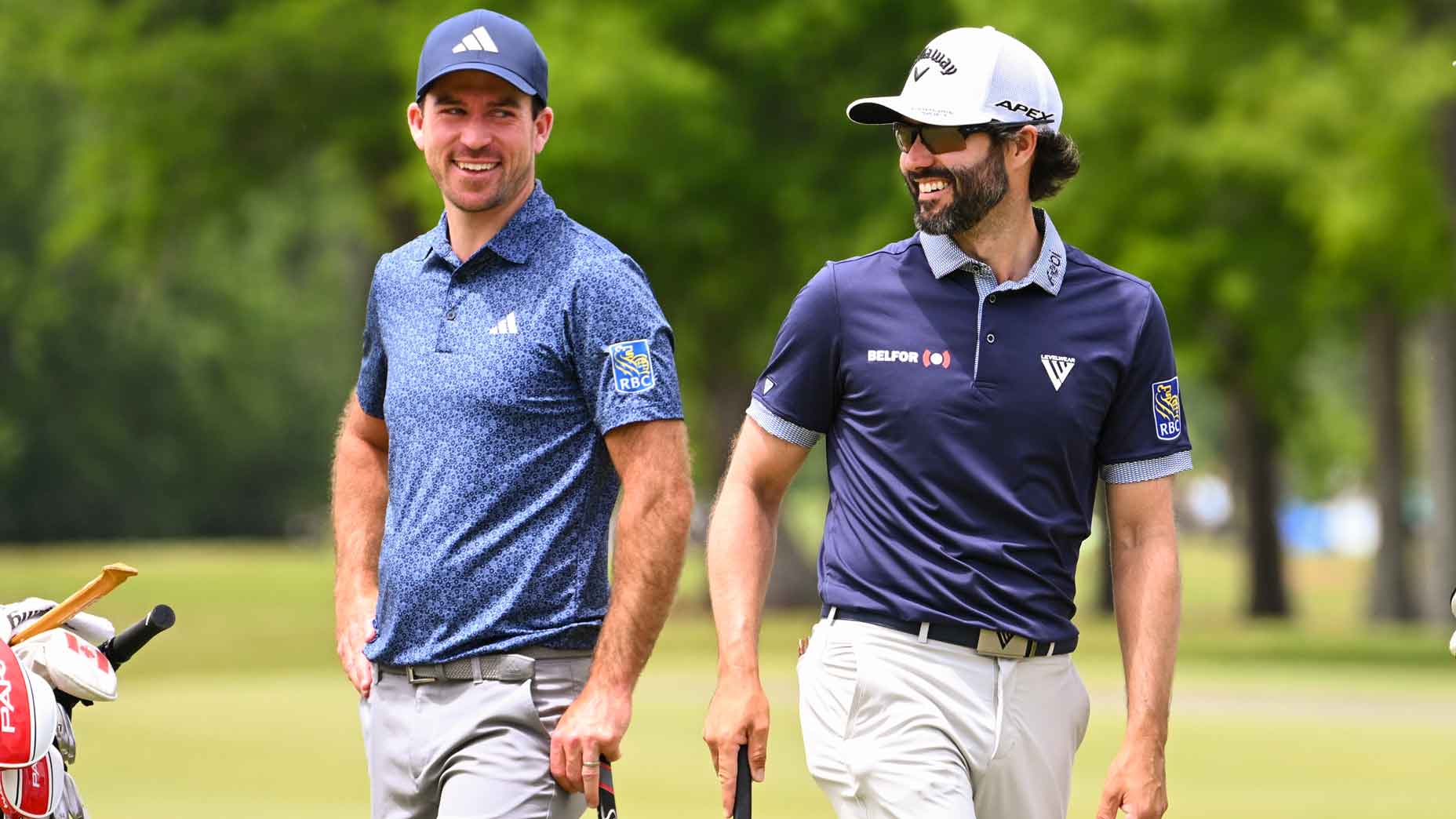
Nick Taylor/Adam Hadwin (35-1)
It is interesting to see this tandem priced so high after finishing runner-up at this tournament last year. I would say they also come into this season’s edition collectively in better form. Taylor won earlier this year in Phoenix and was 12th at the Arnold Palmer Invitational, while Hadwin has three top-six finishes in 2024. This is another seemingly “ham and egg” complementary pairing where Taylor is the excellent ball-striker and Hadwin owns the tremendous short game. As a bonus, Taylor is also 20th in this field for SG: Putting (Bermudagrass) over the last 36 rounds. Chemistry has to be a high mark between the two as they have known each another since childhood and were even roommates at one time. Not that that translates into automatic success, but I believe it is a component that has upside.
Alex Smalley/Matti Schmid (75-1)
Smalley’s form this season has been awful as he’s already missed eight cuts. He did however, finish sixth last week at the Corales Puntacana. Schmid’s form, on the other hand, has been impressive, as he’s made six cuts in a row with only one finish during that span being worse than 26th, which was where he finished at Dye’s TPC Sawgrass for the Players Championship. Twenty-sixth was also where Schmid finished here last year, teaming up with Dylan Frittelli. Schmid makes a lot of birdies, hits a lot of greens in regulation, is a solid putter, and has a history of playing Pete Dye courses really well — as does Smalley. If the Dye course trend continues for both players this week, they will be an intriguing long shot.
Nico Echavarria/Max Greyserman (100-1)
This is my triple-digit flyer this week and I really like the look of the pairing, given their current form. Echavarria has two top-25 finishes and two top-15’s in his last seven starts. Greyserman has made five cuts in his last six starts and during that run, has a top-10 and top-15 finish. Both players can really putt and rack up birdies. Greyserman also ranks eighth in this field over the last 36 rounds on Par 4s of 450-500 yards.
Our top three selections are obviously at shorter prices and lead the way of the bunch in star-power, but the two longer shots are appealing pairings that I believe have a better chance than their prices would suggest.
Who Chirp users like this week
(Chirp user data will be updated as soon as it’s available.)
To make your own Chirp picks and win amazing prizes, download the app here.
